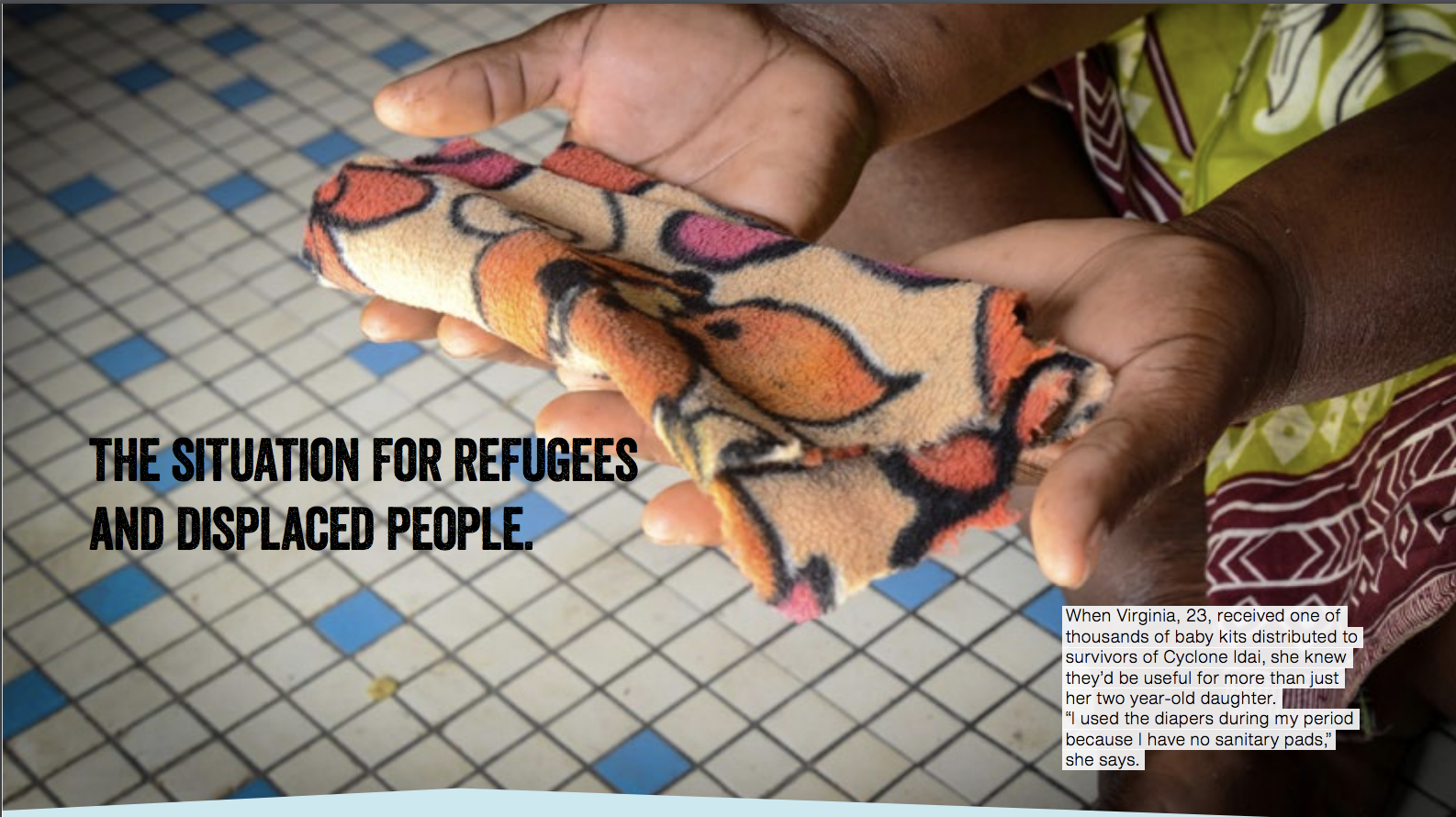Everything else has been said. What we seem to have forgotten is the impact of COVID 19 on menstrual hygiene management. Now let’s talk about. In fact, let’s talk about why you should care.
According to Plan International lack of access to basic information and services about menstrual hygiene has left women struggling to manage their periods during the lockdown.
“From Kenya to Nepal, Australia, Ireland and Cambodia, COVID-19 lockdowns are causing big problems for people who menstruate. Periods don’t stop during a pandemic but managing them safely and with dignity has become a whole lot harder,” said Dr Rosamund Ebdon, Plan International’s Head of Policy.
The misrepresentation of monthly periods, the taboos and myths around them make it difficult for women to navigate through such a natural process without been clouded by the twisted societal narratives around shedding blood. It is blood really that attracts the perversive reaction from masses. Rarely does the pain that women have to endure get the attention it deserved.
And because blood has been associated with shame, now women are having to endure another layer of stigma as a result of the COVID 19 lockdown.
“Plan International’s experts working on the frontline of menstrual hygiene management have reported serious and widespread issues. In particular, they are finding it difficult to source products, have reported intentional inflation of prices, and serious issues with sanitation and reliable access to information. In many countries, period products have become scarce and vulnerable girls and young women, in particular, are going without.”
Menstruation Is Freedom…
It is freedom of a different kind. It should be the place where a girl gradually graduates to a woman. It should be baggage free. But, it isn’t. It is worse now. To know that your period is coming for some women is to be reminded of the inequalities that have festered for years. It is to be aware of an invasion that you can do little about. The periods will come.
“In some cases, stigma and shame associated with menstruation are on the rise, as girls have no other option but to use unsafe alternatives and being confined to their homes, are no longer afforded privacy. When sanitary products are hard to obtain, it means people might resort to using unhygienic alternatives that can increase their risk of reproductive and urinary tract infections,” according to Dr Rosamund Ebdon.
This is not a new injustice
“These issues existed before the pandemic, but we know that this virus is making the situation worse.”
The report by Plan International, Periods in a Pandemic expresses concern over the sanitary towels shortage, as global supply chains are disrupted and ‘smaller-scale private sector enterprises cease trading, deliveries of goods has slowed, particularly in remote areas’.
“It’s true that products have become more expensive during the pandemic. In some cases, the prices have been opportunistically inflated to meet demand. Not only have prices increased but with the pandemic significantly affecting livelihoods and household incomes, people have less money to buy sanitary products than before the COVID-19 pandemic began, even when products are available,” said Dr Ebdon.
To compound an already bad situation, lack of clean water is a reality in many households.
“A lack of access to clean water to wash, toilets with doors for privacy and difficulty disposing of used products are some examples of the challenges that people face in managing their menstrual hygiene in a private, safe and dignified manner.”
Plan International is calling on governments and health agencies to urgently assist girls, women and people who menstruate to manage their periods safely and with dignity.
According to Dr Ebdon “Menstrual health and hygiene, management must be built into COVID-19 health responses and whilst lockdowns continue, it should be built into the remote learning curriculum. We know that people with disabilities and people from marginalised communities, like refugees, for example, are more profoundly impacted by these issues, so their menstrual health and hygiene must be prioritised in responses to the pandemic.”
Menstrual hygiene is achievable. The cultural gravity shouting at women reminding them of how unclean they are should find another narrative to weave. And it perhaps starts with you. Taking personal responsibility for how you talk about menstruation is a step we should be making in this century. Holding power to account in ensuring that sanitary towels are available, accessible and affordable to all should be a priority. Now.












